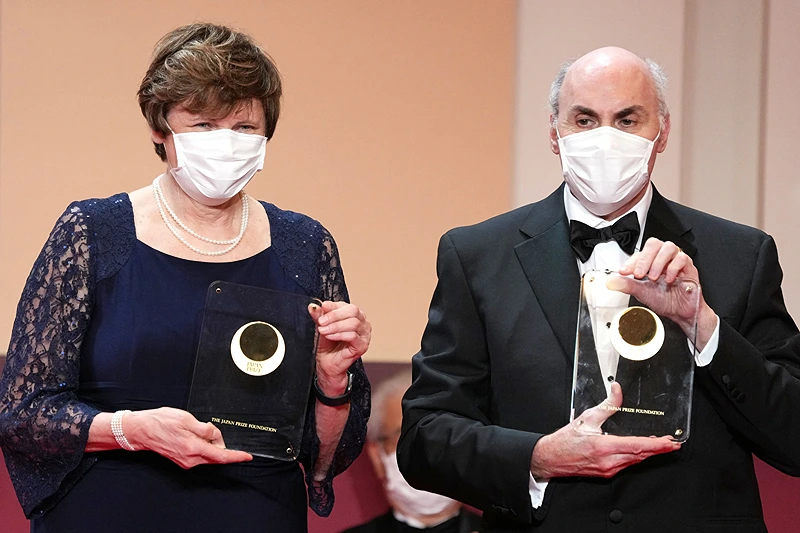

OAN’s Brooke Mallory
3:16 PM – Monday, October 2, 2023
For their work on mRNA in COVID-19 vaccines, which they claim is a vital tool in halting the spread of the virus, Katalin Karikó and Drew Weissman have been given this year’s Nobel Prize in physiology or medicine.
Advertisement
On Monday, the Nobel Prize committee made the announcement in Sweden.
The Nobel Prize is regarded as the pinnacle of scientific achievement, and the committee praised the scientists’ “groundbreaking findings,” which they said “fundamentally changed our understanding of how mRNA interacts with our immune system.”
Karikó and Weissman had published their findings from a study in 2005, but they received little attention at the time. However, the study was eventually utilized for the COVID-19 pandemic, when vaccine companies chose to adopt MRNA.
“The laureates contributed to the unprecedented rate of vaccine development during one of the greatest threats to human health in modern times,” the committee said in a joint statement.
According to Rickard Sandberg, a member of the committee, “mRNA vaccines together with other COVID-19 vaccines have been administered over 13 billion times. Together they have saved millions of lives, prevented severe COVID-19, reduced the overall disease burden and enabled societies to open up again.”
Weissman, an American physician, and Karikó, a biochemist who is Hungarian-American, are both professors at the University of Pennsylvania. Their research served as the basis for a novel method used by Pfizer, Moderna, and its German-based partner BioNTech to create vaccines that employ messenger RNA, or mRNA.
Researchers frequently liken DNA to a large cookbook that contains all the ingredients and instructions for life. Messenger RNA, which functions like a handwritten copy of a recipe in the cookbook analogy, is a transitory single strand of the genetic code that cells may “read” and utilize to produce a protein.
With mRNA vaccines, the body responds by producing antibodies and specialized immune system cells by instructing cells to manufacture an object that resembles a virus. A live or attenuated virus is not injected or necessary at any stage, in contrast to conventional vaccinations.
“The impressive flexibility and speed with which mRNA vaccines can be developed pave the way for using the new platform also for vaccines against other infectious diseases,” the committee said. They added that the technology “may also be used to deliver therapeutic proteins and treat some cancer types.”
The announcements for the Nobel Prizes in physics, chemistry, literature, and economics started on Monday in Sweden and will go on throughout this week and into the next.
In the 1970s, when mRNA research was in its infancy, Karikó started her profession in her home country of Hungary. She later accepted an offer from Philadelphia’s Temple University, and soon after, she, her husband, and their daughter left for the U.S.
“Together with my colleague, Drew Weissman, at the University of Pennsylvania, we developed this method where we changed one component in the RNA, which made it less immunogenic. It is possible to use it for different kinds of therapies,” Karikó announced.
Weissman told reporters that, compared to conventional vaccine production methods, their mRNA approach was far more effective.
However, many social media users were hypercritical of the two scientists receiving the notable prize for their findings.
“I remember when you only needed one vaccine to be protected by a virus or disease, now this mRNA b***s*** requires us to take numerous booster shots after our initial shot? And then it still doesn’t even guarantee complete protection… what a joke,” said one user on X, the social media platform formally known as Twitter.
Stay informed! Receive breaking news blasts directly to your inbox for free. Subscribe here. https://www.oann.com/alerts





Be the first to comment